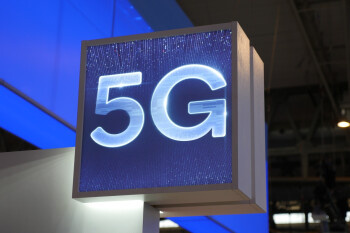Just a couple of weeks after it last attempted to “quantify the US urban 5G experience” by analyzing data collected between May 20 and October 24, OpenSignal is back with an interesting new report based on speed tests performed in the October 21 – November 20 timeframe.
That October 21 start date for this latest rigorous research was not randomly selected, mind you, closely following Verizon’s long overdue, highly publicized, and fairly contentious “nationwide” 5G network rollout.
Of course, the top US wireless service provider made its 5G industry debut a while ago with an even more controversial Ultra Wideband signal that reached a very small portion of Big Red’s customers in a limited number of cities across the country. But that’s precisely what makes this new report so intriguing, documenting the sudden changes in 5G download speeds and availability recently experienced by many Verizon subscribers in Atlanta, Houston, Los Angeles, New York, and Washington.
Is the 5G playing field level now?
At first glance, that certainly seems to be the case, as the 5G download speed averages produced by the big three US carriers in three of the aforementioned five major cities examined by OpenSignal were so close that no clear leader could be chosen by the firm’s analysts.
Meanwhile, T-Mobile did emerge as the definite winner in Washington and Houston, but both Verizon and AT&T scored over 40 Mbps across the board, making the 5G market extremely competitive. At the end of the day, Magenta does have a slight overall speed advantage in these five cities, largely made possible by that incredibly valuable mid-band spectrum acquired from Sprint, which T-Mo was very fast to integrate, redeploy, and expand to more and more places.
In contrast, Big Red and Ma Bell are using a combination of low and high-band technology to cover a large portion of the country with a slow 5G signal and deliver insane speeds for a tiny number of users. What’s unique to Verizon’s approach is something called Dynamic Spectrum Sharing (DSS), which T-Mobile claimed would make its arch-rival’s “nationwide” 5G inferior to its 4G LTE network in more ways than one.
At least for the time being, that doesn’t appear to be entirely true, although Verizon’s average 5G download speeds have indeed decreased since the beginning of October. The same goes for the 5G users’ overall download speed experience, which combines 5G speeds with 4G LTE speeds and the time spent connected to each technology.
That very important metric is down for Verizon but up for T-Mobile and AT&T, which is definitely not an encouraging sign for the nation’s largest mobile network operator. On the bright side, all three carriers still offer considerably higher speeds on 5G than their legacy 4G networks, proving there’s a lot of “misplaced cynicism” about the progress and benefits of US 5G technology.
Verizon has a long way to go in terms of 5G availability
The main reason why Verizon finally made its DSS-powered “nationwide” 5G move, of course, is connected to 5G availability rather than speeds, but while the carrier made clear progress in that field, there’s still no rivaling T-Mobile.
Interestingly, AT&T is not that far behind the 5G availability champion, at least not in these five major cities. Curiously enough, while Big Red made huge gains from below 1 percent numbers to anywhere between 9.2 and 13.9 percent scores, and Magenta boosted its already impressive figures as well, Ma Bell somehow managed to lose a couple of points in a couple of places in just a little over a month.
It’s also important to highlight that the nationwide 5G availability results probably look radically different from what OpenSignal found in Atlanta, Houston, Los Angeles, New York, and Washington, as T-Mobile is especially accomplished in terms of rural 5G coverage, a department where Verizon is likely to suffer for at least a little while longer.
Overall, it’s hard to argue with all those pundits declaring T-Mo as the clear US 5G market leader after looking at these numbers, but Verizon and AT&T might be in a (slightly) better position than many people think.
Source: Phonearena






Comments